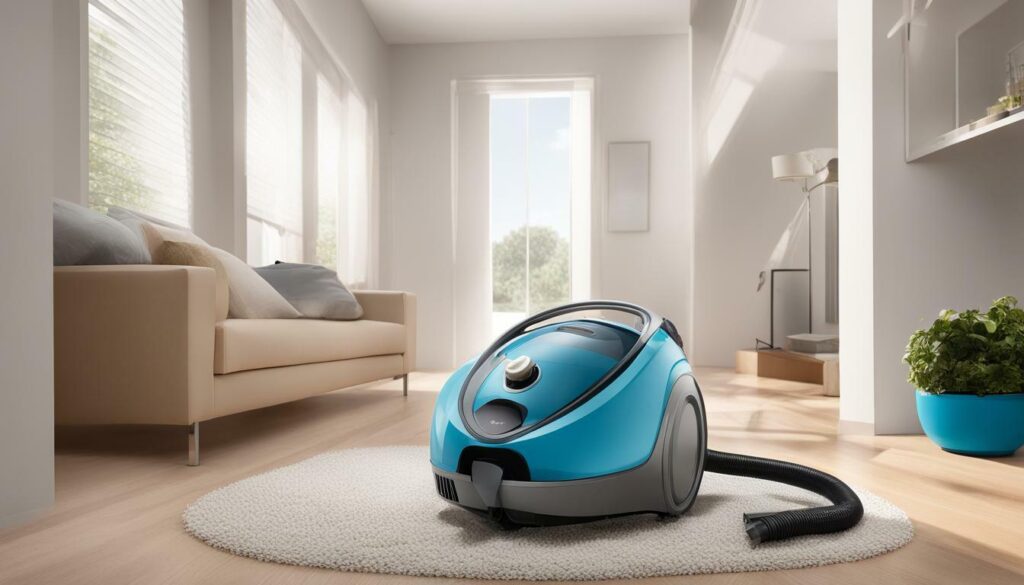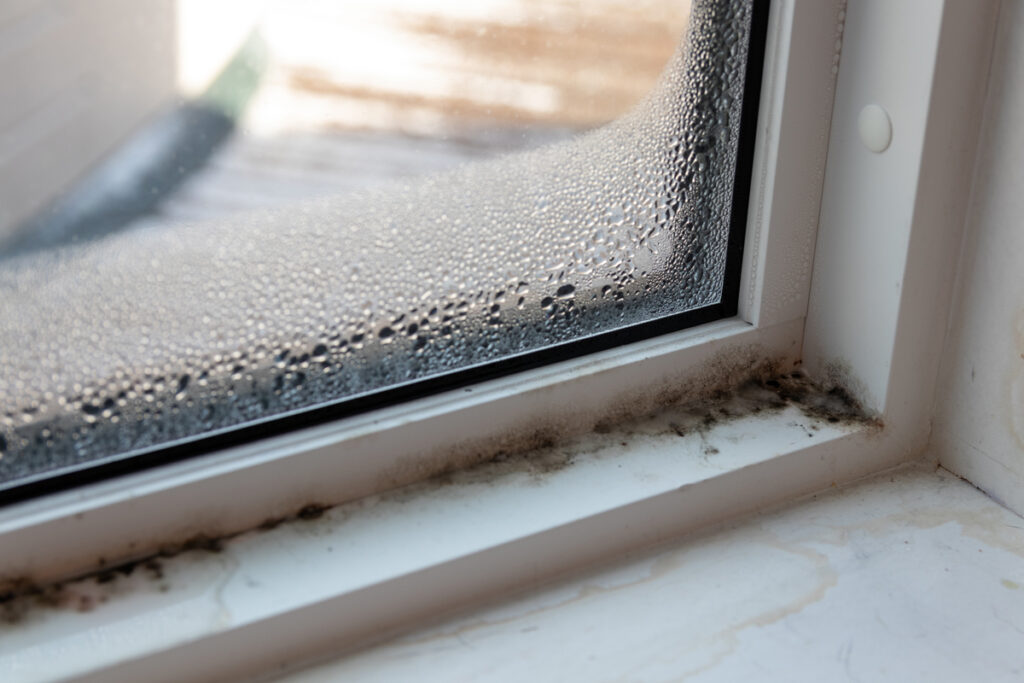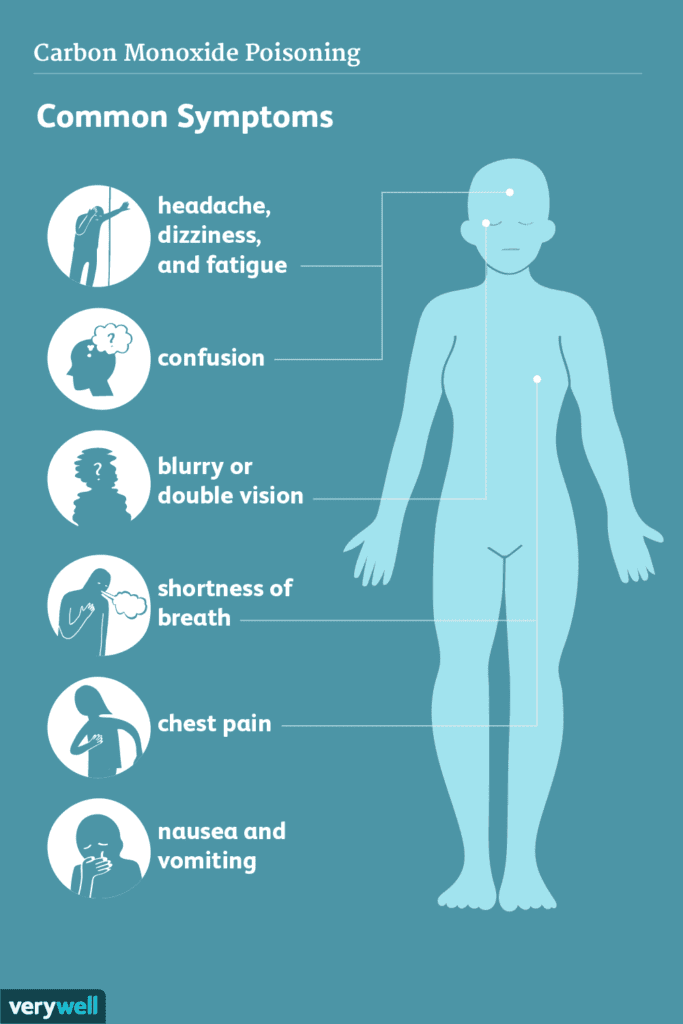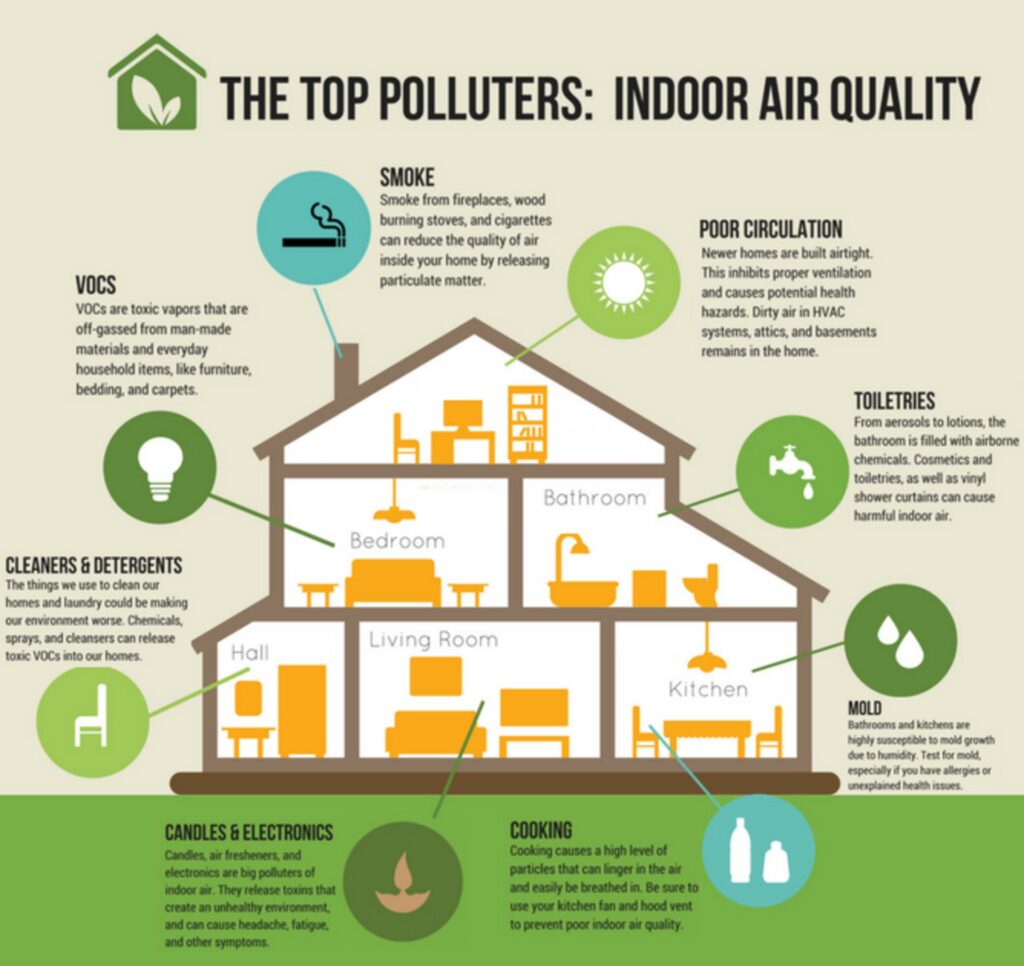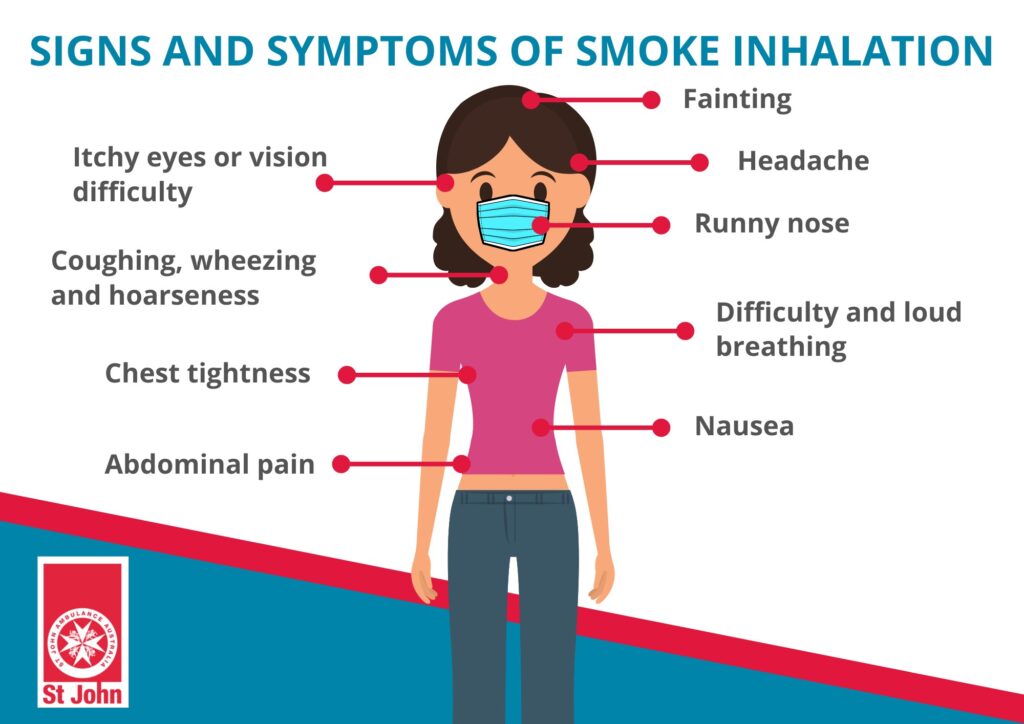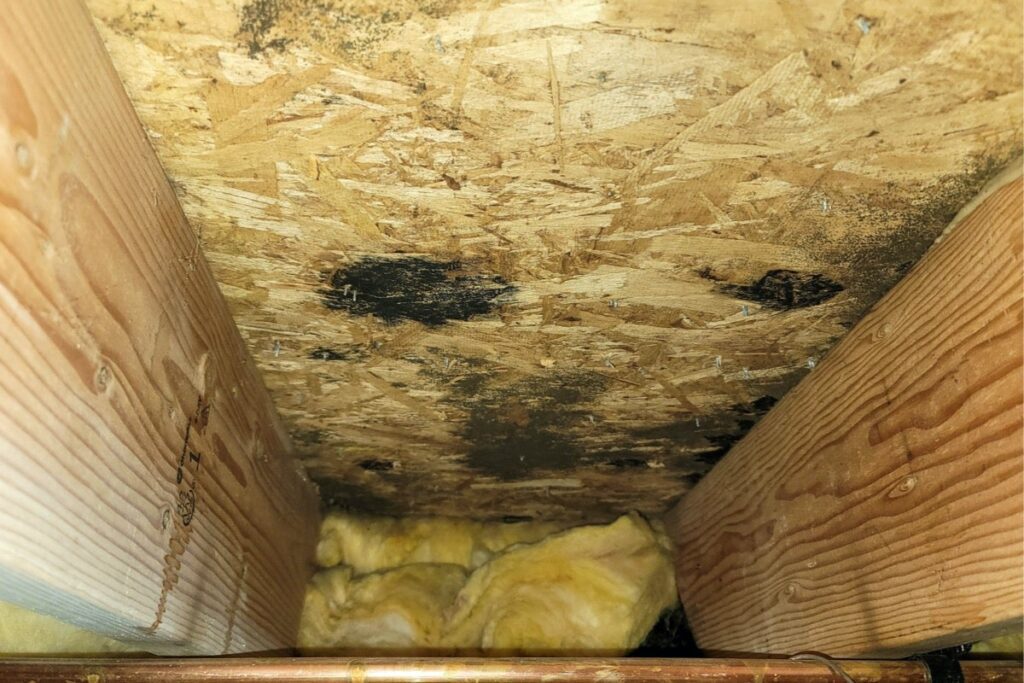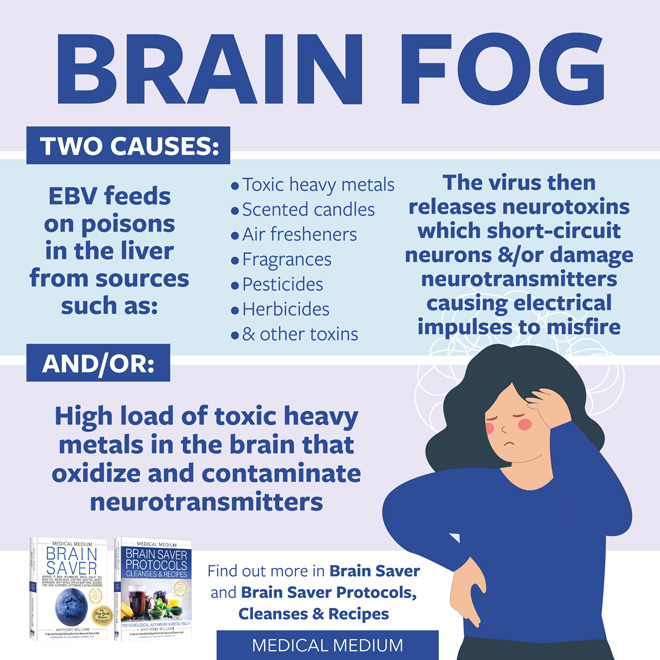If you’re concerned about the air quality in your home, you’re not alone. Indoor air pollution can cause a range of health issues, including allergies, respiratory problems, and even cancer. That’s why it’s essential to know the fastest ways to clean the air in your house to ensure the health and well-being of you and your family.
There are various methods and techniques you can use to quickly and effectively clean the air in your house. From investing in an air purifier to using natural cleaning products, these tips can help you enhance the indoor air quality of your home.
Key Takeaways:
- Indoor air pollution can cause health issues.
- Cleaning the air in your house is essential for your health and well-being.
- There are several ways to quickly and effectively clean the air in your home.
Understanding Indoor Air Quality and Its Importance
Welcome to the second section of this article! Before we dive into the fastest ways to clean the air in your house, let’s take a moment to understand indoor air quality (IAQ) and its importance. IAQ refers to the quality of air within and around buildings and structures, mainly related to the health and comfort of the occupants.
Poor IAQ can result in several health problems, such as allergies, respiratory issues, headaches, and fatigue. The reasons behind poor IAQ can range from outdoor pollutants, such as pollen and smog, to indoor pollutants, such as mold, dust, tobacco smoke, and pet dander.
Now, let’s discuss the various techniques and methods available for air purification. Some common air purification methods include:
- Air filtration: This process involves using air filters to trap airborne particles and pollutants.
- Air cleaning: This technique includes using devices such as air purifiers and ionizers to reduce airborne pollutants.
- Ventilation: This involves increasing the amount of outdoor air in a space to reduce indoor pollutants.
- Source control: This involves removing or reducing the source of indoor pollutants, such as tobacco smoke or chemical fumes.
- Natural cleaning products: Using natural cleaning products can effectively reduce airborne pollutants and improve indoor air quality.
Each of these methods has its advantages and disadvantages. Choosing the right method depends on your specific needs and the type of pollutants you want to remove. In the following sections of this article, we will explore some of these methods in detail to help you achieve cleaner and healthier air in your house.
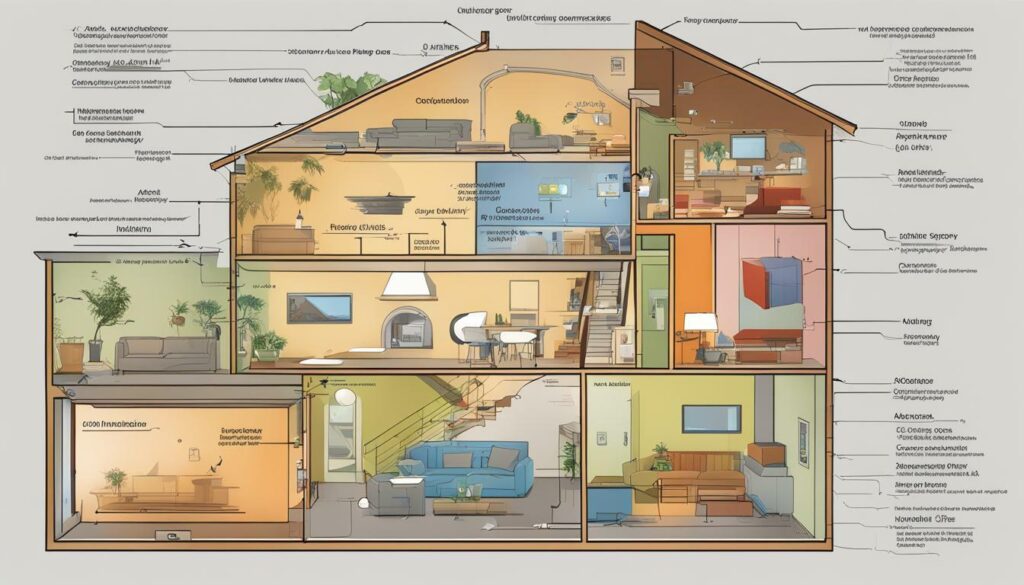

Investing in an Air Purifier
If you want to quickly and effectively clean the air in your house, investing in an air purifier is your best bet. Air purifiers can remove a variety of pollutants from the air, such as pollen, pet dander, dust mites, and mold spores, which can significantly contribute to poor indoor air quality.
When choosing an air purifier, look for one that is suitable for the size of your home and has a high CADR (Clean Air Delivery Rate) rating. CADR measures the amount of clean air produced by the purifier in relation to room size, so the higher the CADR rating, the more effective the purifier will be at cleaning the air in your home.
There are several types of air purifiers available, including HEPA (High-Efficiency Particulate Air) filters, activated carbon filters, and UV-C (Ultraviolet-C) light purifiers. HEPA filters are considered the gold standard for air purification and can capture up to 99.97% of particles as small as 0.3 microns. Activated carbon filters are effective at removing odors and chemicals from the air, while UV-C light purifiers can kill bacteria and viruses.
Investing in an air purifier is a great way to improve your home’s indoor air quality and ensure that the air you breathe is clean and healthy. With a variety of options available for home air purification, you can find the right air purifier to suit your needs and budget.
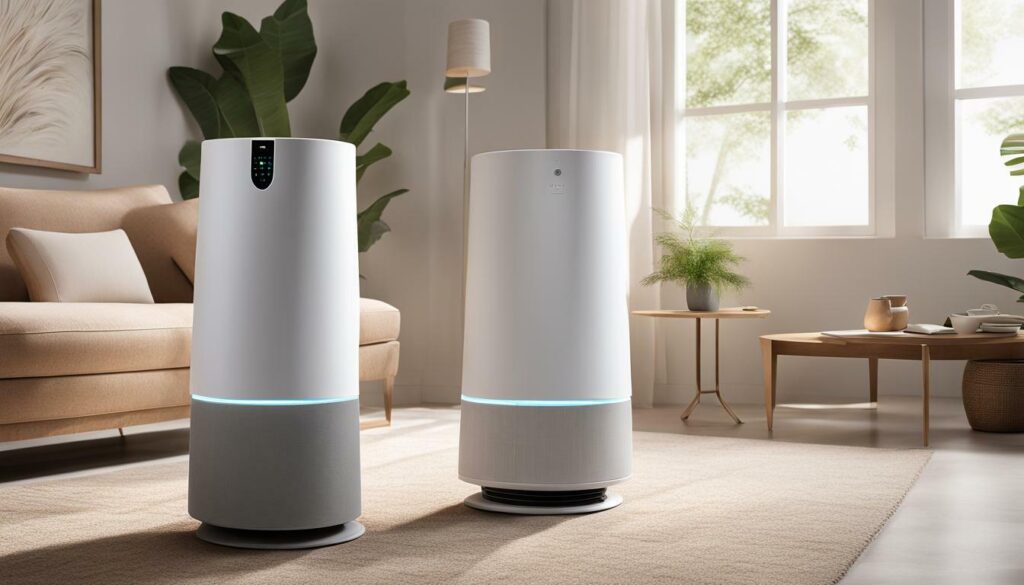

Using Natural Cleaning Products
To ensure clean air in your house, it’s important to use natural cleaning products that don’t contain harsh chemicals or emit harmful fumes. Cleaning products with chemicals can cause indoor air pollutants that are detrimental to your health. Instead, opt for natural cleaning products such as vinegar, lemon juice, baking soda, and hydrogen peroxide.
Vinegar is versatile and can clean a variety of surfaces. It is perfect for cleaning windows, floors, and countertops. You can mix vinegar with water for a general cleaning solution. Lemon juice has natural disinfectant properties and can be used to clean surfaces such as cutting boards, countertops, and sinks. Baking soda is an excellent ingredient for removing tough stains and odors. It can be used to clean carpets, clothes, and even kitchen appliances. Hydrogen peroxide is another natural cleaning agent that can be used to disinfect surfaces and remove stains.
Another way to ensure clean air in your house is to use air-purifying plants. Indoor plants such as spider plants, peace lilies, and snake plants can absorb harmful pollutants and improve indoor air quality. These plants are easy to care for and add a touch of greenery to your living space.
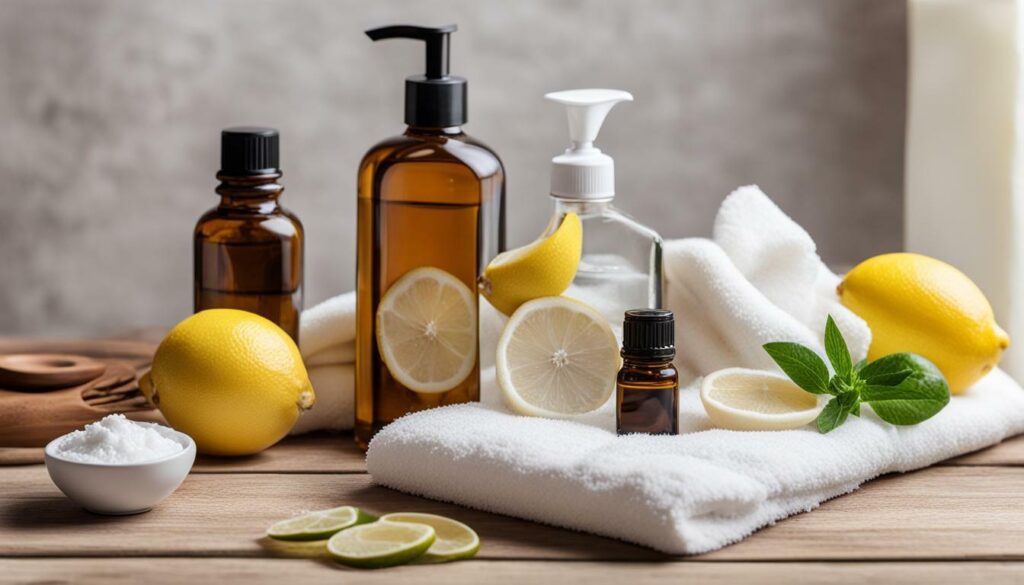

By using natural cleaning products and air-purifying plants, you can effectively reduce airborne pollutants and improve indoor air quality in your house. Not only are these methods better for your health, but they are also better for the environment.
Maintaining Good Ventilation
Improving ventilation in your home is an essential part of maintaining clean air in your house. Proper ventilation helps in reducing indoor air pollutants and maintaining indoor air quality. Here are some tips to help you improve the ventilation in your home:
- Use exhaust fans – Make sure to turn on exhaust fans in your kitchen and bathrooms to pull out pollutants and moisture.
- Open windows – Opening windows in your home allows fresh air to circulate and take away stale indoor air.
- Regular air circulation – Make sure to run your HVAC system regularly to circulate air and reduce indoor air pollutants like mold and dust.
By following these simple tips, you can ensure that the air in your house is clean and healthy. Remember, maintaining good ventilation is one of the fastest ways to improve the indoor air quality in your home.
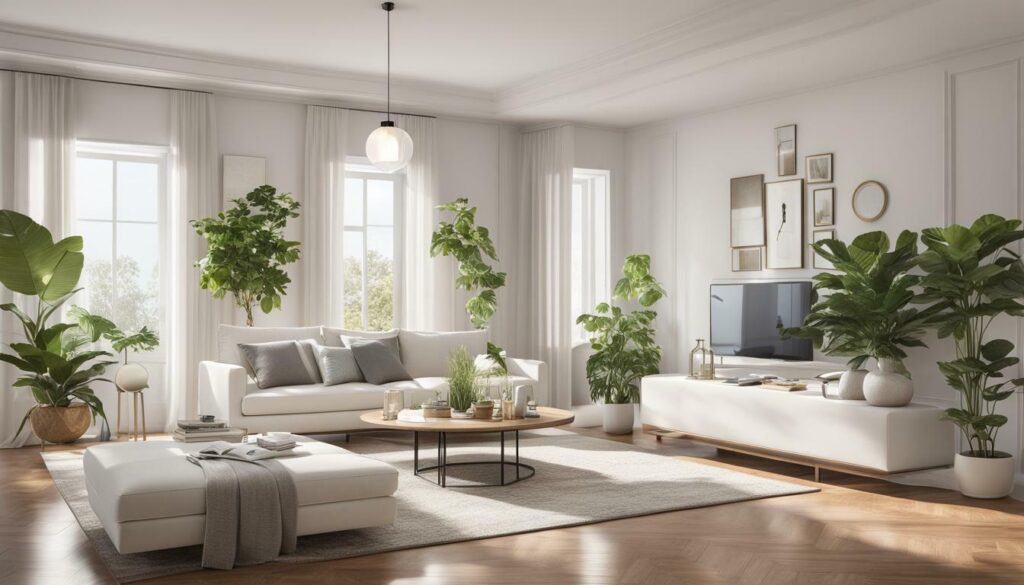

Eliminating Indoor Air Pollutants
When discussing indoor air quality, identifying and eliminating indoor air pollutants is crucial. These pollutants may include mold, dust, bacteria, volatile organic compounds (VOCs), and other harmful particles that can affect your health and reduce the cleanliness of the air in your house.
One of the best ways to address indoor air pollutants is by using air cleaning techniques such as dusting, vacuuming, and wiping surfaces with natural cleaning products. These techniques can help remove irritants from your home and improve indoor air quality.
Regularly replacing HVAC filters and cleaning air ducts can also help to eliminate indoor air pollutants. These filters and ducts can collect a significant amount of debris, which can negatively impact the air quality in your house if not addressed regularly.
Additionally, reducing the use of chemical cleaning products and being mindful of the items that you bring into your house can also help to eliminate indoor air pollutants. For example, using natural cleaning products that are free of harsh chemicals can contribute to a cleaner and healthier indoor environment.


Regular HVAC Maintenance
Proper maintenance of your HVAC (Heating, Ventilation, and Air Conditioning) system is crucial for maintaining clean air in your house. HVAC systems work by circulating and filtering air throughout your home. Over time, the filters can become clogged with dust and other particles, reducing their effectiveness in cleaning the air.
To maintain good indoor air quality, it’s recommended to replace your HVAC filters every 3 months or as required by the manufacturer. Neglecting to replace filters can result in poor air quality, as well as potential damage to your HVAC system.
Regular system cleaning is also necessary to ensure optimal performance and to prevent the buildup of dust and debris within the system. Hiring a professional HVAC technician to perform routine maintenance can help maintain good air quality and prolong the life of your system.
Additionally, consider installing an air filtration system within your HVAC system to maximize air cleaning efficiency. These systems can filter out even the smallest particles, such as allergens and pollutants, to improve indoor air quality.
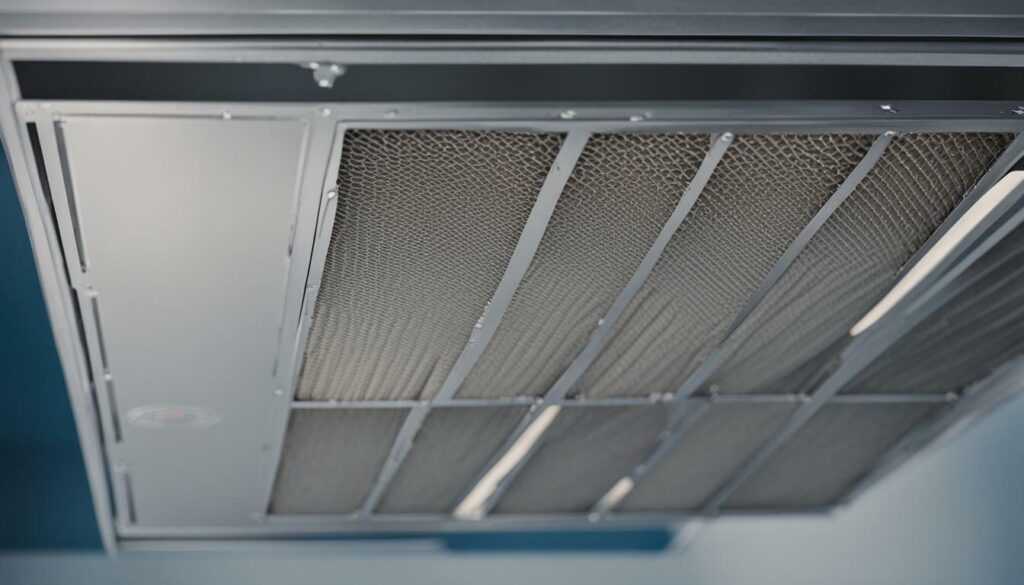

Regular HVAC maintenance, including filter replacement and system cleaning, is essential for maintaining clean indoor air quality. Consider installing an air filtration system to enhance the effectiveness of your HVAC system in cleaning the air.
Allergen Control and Prevention
Keeping your house free of allergens is a crucial step in improving the indoor air quality and breathing cleaner air. Common allergens such as pet dander, dust mites, and pollen can significantly impact the air quality in your house, leading to allergies and respiratory problems. Here are some tips on controlling and preventing allergens in your home:
- Regularly clean and vacuum your house to remove pet dander, dust, and other debris that can trigger allergies.
- Invest in a quality air purifier that can capture and eliminate allergens from the air.
- Install high-efficiency air filters in your HVAC system to trap allergens and other airborne particles.
- Use allergy-proof covers for your mattresses, pillows, and bedding to prevent dust mites from accumulating.
- Keep your windows closed during high pollen seasons and use a HEPA air filter in your bedroom to control pollen levels.
- Consider using natural remedies such as essential oils and herbs to help alleviate allergy symptoms.
By controlling and preventing allergens in your house, you can maintain clean air and improve the indoor air quality of your home.
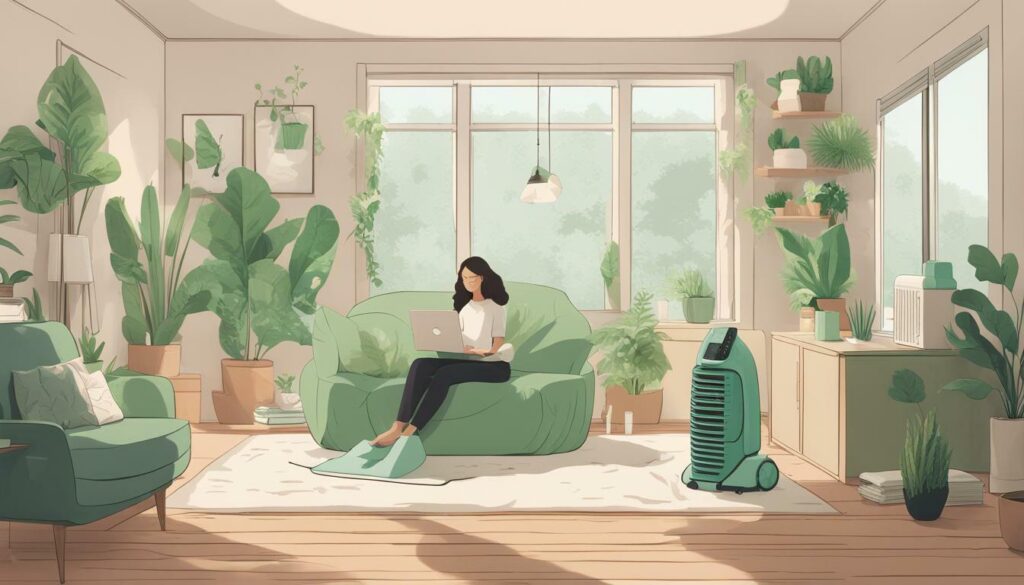

Note: In the next section, we will discuss the importance of regular HVAC maintenance in improving indoor air quality.
Conclusion
Congratulations, you now have a better understanding of the fastest ways to clean the air in your house and improve indoor air quality. By investing in an air purifier, using natural cleaning products, improving ventilation, eliminating indoor air pollutants, and regularly maintaining your HVAC system, you can ensure that you and your family breathe cleaner and healthier air in your home.
Remember, good indoor air quality is crucial for your health and well-being. So, make sure to follow these tips and take the necessary steps to maintain a clean and healthy living environment.
FAQ
Q: What is the fastest way to clean the air in your house?
A: The fastest way to clean the air in your house is by using an air purifier.
Q: Why is indoor air quality important?
A: Indoor air quality is important because it affects your overall health and well-being. Poor indoor air quality can lead to respiratory issues, allergies, and other health problems.
Q: How do air purifiers work?
A: Air purifiers work by removing pollutants and contaminants from the air, such as dust, pollen, pet dander, and mold spores. They use filters or other technologies to capture and trap these particles.
Q: What are some natural cleaning products that can improve indoor air quality?
A: Some natural cleaning products that can improve indoor air quality include vinegar, baking soda, lemon juice, and essential oils.
Q: How can I improve ventilation in my home?
A: You can improve ventilation in your home by using exhaust fans in bathrooms and kitchens, opening windows to let fresh air in, and ensuring proper air circulation throughout your house.
Q: What are common sources of indoor air pollutants?
A: Common sources of indoor air pollutants include tobacco smoke, cooking fumes, cleaning products, pet dander, and chemicals found in furniture, carpets, and building materials.
Q: How often should I perform HVAC maintenance?
A: It is recommended to perform HVAC maintenance at least once a year. This includes replacing air filters, cleaning air ducts, and checking for any issues with the system.
Q: How can I control and prevent allergens in my home?
A: To control and prevent allergens in your home, you can regularly vacuum and dust, wash bedding in hot water, keep pets out of bedrooms, and use allergen-proof covers on pillows and mattresses.

